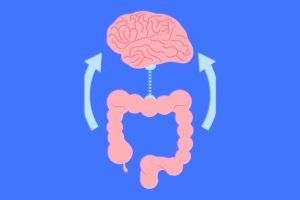Recent research suggests that a high-quality diet, rich in whole, nutrient-dense foods, may be linked to reduced chronic pain, particularly in women. Interestingly, body fat levels did not significantly influence this outcome, indicating that adopting a healthy diet could directly support pain management, independent of body composition.
Experts advise incorporating antioxidant-rich foods into your diet and adopting a holistic approach to lifestyle changes for effective long-term pain management.
A study published in Nutrition Research highlights the direct impact of diet quality on pain levels and physical function, particularly among women, regardless of body fat levels.
Study Details: The WISH Study
Researchers analyzed data from the Whyalla Intergenerational Study of Health (WISH), which involved 654 adults aged 18 to 89, predominantly women (57%). The study aimed to examine whether body fat—measured by body mass index (BMI), waist circumference, or body fat percentage—serves as a link between diet quality and outcomes such as pain and physical function.
The WISH study assessed diet quality using a 12-month food frequency questionnaire and the Australian Dietary Guideline Index, which evaluates how closely an individual’s eating habits align with recommended dietary standards. Pain levels were measured through a pain scale survey, and hand grip strength was used as an indicator of physical function.
After adjusting for factors such as age and energy intake, the study found that body fat was not a mediator between diet quality and pain. Instead, the quality of the diet alone had a direct impact on pain levels.
Diet Quality and Gender Differences
Although the study initially indicated that diet quality affected the entire population, gender-specific differences became apparent upon further analysis.
For women, a higher-quality diet was significantly associated with lower pain levels, with reductions ranging from 37.2% to 38.8%. These effects were observed regardless of body fat levels. Women who consumed more “core foods”—whole foods such as fruits, vegetables, lean proteins, and grains—reported even greater reductions in pain, with decreases ranging from 46.7% to 48.2%.
Moreover, improved diet quality was linked to enhanced physical strength in women. However, the study found no significant effects on pain or physical function in men, suggesting that the impact of diet quality on pain may differ by gender.
The Need for Further Research
Although these findings are promising, further research is needed to establish causality, as this observational study cannot determine cause-and-effect relationships. Additionally, the results may not apply to more diverse populations.
Despite this, the study provides encouraging evidence that adopting a healthier diet may reduce pain and improve physical function, especially in women, independent of body fat levels.
How Can a Healthy Diet Help Manage Chronic Pain?
Chronic pain, which lasts for more than three months, affects approximately 30% of the global population. The causes of chronic pain vary, but research has shown a strong connection between obesity and chronic pain, with weight gain often worsening pain and vice versa.
Recent studies, including the current one, suggest that dietary patterns can influence pain independently of body weight.
Dr. Thomas M. Holland, MD, MS, a physician-scientist at the RUSH Institute for Healthy Aging, explains that a higher-quality diet can reduce chronic pain by minimizing inflammation and oxidative stress. Nutrient-dense foods rich in vitamins, minerals, and antioxidants support overall health and reduce systemic inflammation, which is a known contributor to pain. In contrast, a diet high in refined carbohydrates, saturated fats, and added sugars, such as the typical Western diet, can exacerbate inflammation, worsening pain and potentially making it last longer.
Foods to Help Manage Chronic Pain
The study found that women who consumed more “core” foods—such as fruits, vegetables, lean proteins, and whole grains—experienced lower pain levels. Dr. Holland suggests that the anti-inflammatory and antioxidant properties of these foods likely help alleviate pain pathways, providing benefits that are independent of body weight.
Foods with strong anti-inflammatory properties that may help manage chronic pain include:
- Berries
- Extra virgin olive oil
- Dark leafy greens
- Fatty fish rich in omega-3s
- Nuts and seeds
- Whole grains
Incorporating these foods into your diet can help reduce pain severity and improve overall well-being.
Kiran Campbell, RDN, a registered dietitian, echoes these recommendations, emphasizing the importance of focusing on dietary patterns and ingredients that reduce inflammation and oxidative stress. She suggests following anti-inflammatory diets such as the Mediterranean, DASH, or MIND diets, which align with these principles.
In addition to foods rich in antioxidants and omega-3 fatty acids, Campbell advises incorporating foods high in probiotics, fiber, vitamins, and minerals. Examples include yogurt, fatty fish (like salmon and tuna), beans, seeds, legumes, and nutrient-dense fruits and vegetables like blueberries, bell peppers, and dark leafy greens.
While these foods should form the foundation of a healthy diet, Campbell also recommends limiting processed meats, sugary foods, refined grains, and other foods that may contribute to inflammation.
A Holistic Approach to Chronic Pain Management
Campbell highlights the significance of the study’s findings, emphasizing the growing body of evidence supporting the use of nutrition as a tool for managing chronic pain. While women experienced a more noticeable reduction in pain, men also showed some improvement when adopting a nutrient-rich diet.
Both Campbell and Dr. Holland advocate for a holistic approach to chronic pain management, combining a healthy diet with other lifestyle modifications. Dr. Holland concludes, “Adopting an overall healthy lifestyle can amplify the benefits of a nutritious diet in managing chronic pain. It’s never too early or too late to make healthier choices, as even small changes can lead to significant improvements in pain and quality of life.”
By integrating dietary changes with other healthy habits, individuals can develop a comprehensive approach to managing chronic pain over the long term.
Disclaimer: This information is for general knowledge and informational purposes only and does not constitute medical advice. Always consult with a healthcare professional for any health concerns 1 or before making any significant dietary changes.




